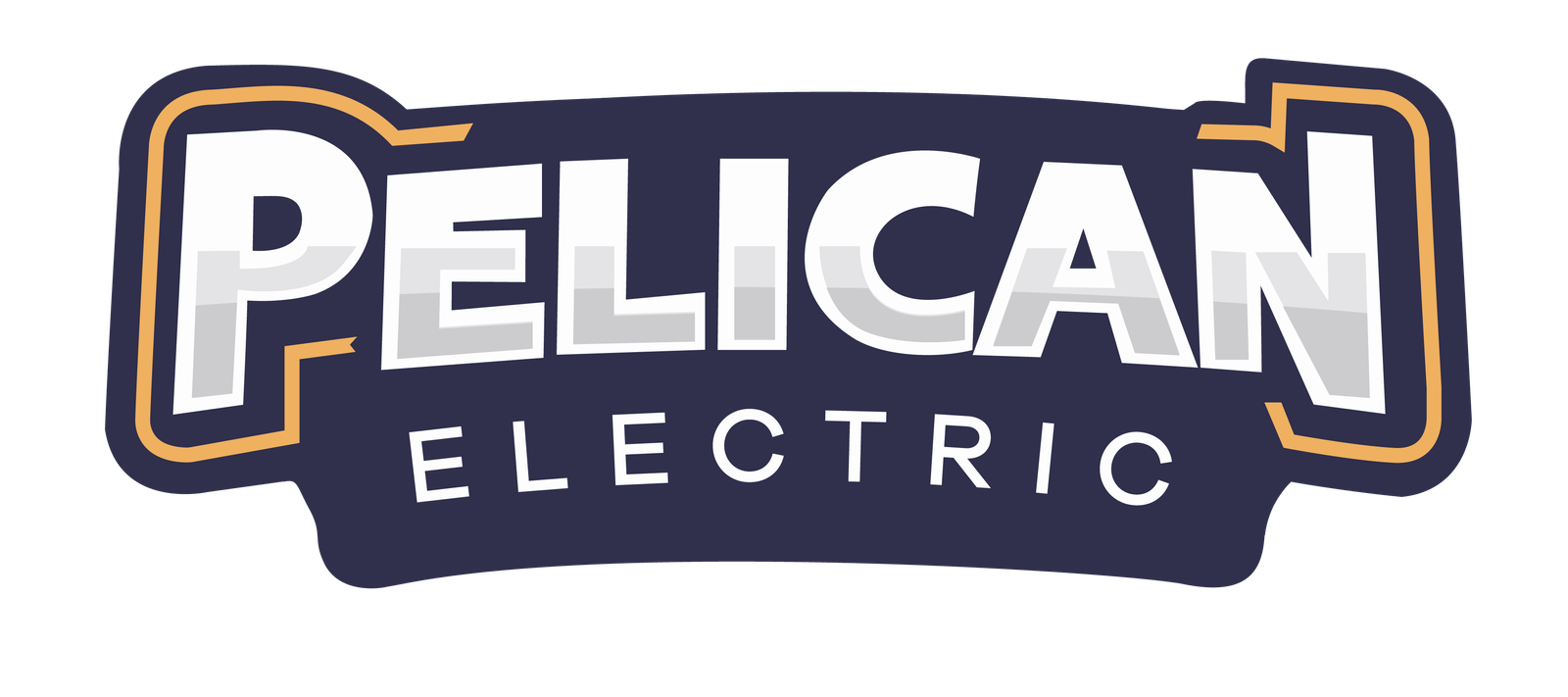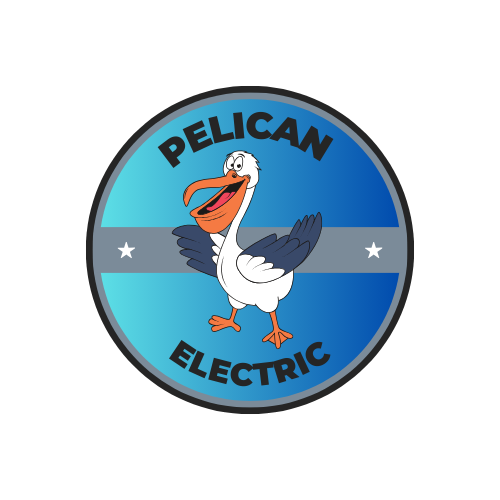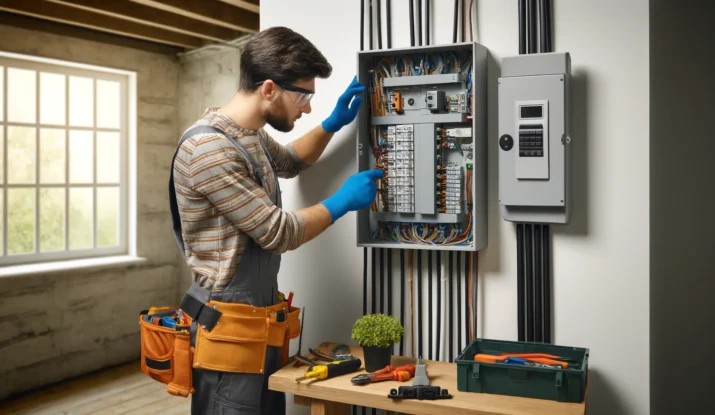Introduction
Overview of Panel Upgrades
Upgrading your electrical panel is essential for maintaining a safe and efficient power system in both residential and commercial settings. Whether it’s to accommodate increasing power demands or to replace outdated equipment, panel upgrades are crucial for ensuring reliable and safe electricity flow. This blog will explore the differences between residential and commercial panel upgrades, their benefits, and the processes involved.
Residential Panel Upgrades
Signs Your Home Needs a Panel Upgrade
There are several indicators that your home’s electrical panel may need an upgrade:
- Frequent Circuit Breaker Trips: If your circuit breakers trip often, it may indicate that your panel cannot handle the current electrical load.
- Use of Multiple Extension Cords: Reliance on extension cords and power strips can be a sign that your home’s wiring and panel need to be upgraded to support more outlets.
- Home Renovations or Additions: Adding new rooms, appliances, or high-energy devices typically requires an electrical system upgrade.
- Flickering Lights or Outdated Panel: Flickering lights and old panels with fuses instead of breakers are signs that an upgrade is necessary for safety and efficiency.
Benefits of Upgrading Your Home’s Electrical Panel
Upgrading your electrical panel comes with numerous benefits, including:
- Enhanced Safety: Modern panels reduce the risk of electrical fires and other hazards by providing better protection against overloading and short circuits.
- Increased Electrical Capacity: An upgraded panel can handle more circuits and higher electrical loads, supporting modern appliances and technology.
- Improved Energy Efficiency: New panels are more efficient, potentially lowering your electricity bills.
- Better Home Resale Value: Up-to-date electrical systems can increase your home’s value and appeal to potential buyers.
Steps Involved in Residential Panel Upgrade
Here’s a step-by-step guide to what you can expect during a residential panel upgrade:
- Initial Assessment: A licensed electrician will inspect your current system and determine the need for an upgrade.
- Choosing the Right Panel: Based on your home’s needs, the electrician will help you select the appropriate panel with the right capacity and features.
- Professional Installation: The old panel will be safely removed, and the new panel will be installed, ensuring all connections are secure and up to code.
- Final Inspection and Testing: The system will be thoroughly tested to ensure everything works correctly, followed by a final inspection to confirm compliance with local codes and standards.
Cost Considerations for Residential Upgrades
When planning a residential panel upgrade, understanding the cost factors involved can help you budget appropriately:
- Factors Affecting the Cost:
- Panel Size and Capacity: Larger panels with higher capacity are more expensive.
- Labor Costs: Professional installation costs vary depending on the complexity of the job and the electrician’s rates.
- Permits and Inspections: Local regulations may require permits and inspections, adding to the overall cost.
- Additional Upgrades: Sometimes, other parts of the electrical system may need upgrades or repairs during the panel installation.
- Typical Price Range:
- Residential panel upgrades can range from $1,000 to $3,000 or more, depending on the factors mentioned above.
- Potential Savings from Energy Efficiency:
- An upgraded panel can improve energy efficiency, leading to long-term savings on your electricity bills.
DIY vs. Professional Panel Upgrade
While some homeowners may consider a DIY approach to save money, it’s essential to understand the risks and benefits of professional installation:
- Risks of DIY Upgrades:
- Safety Hazards: Incorrect installation can lead to electrical fires, shocks, and other hazards.
- Code Violations: DIY installations may not meet local electrical codes, resulting in failed inspections and potential fines.
- Insurance Issues: Improperly installed panels may void your home insurance policy.
- Benefits of Hiring a Licensed Electrician:
- Expertise and Experience: Professionals ensure the job is done safely and correctly.
- Code Compliance: Licensed electricians are familiar with local codes and regulations, ensuring your upgrade passes inspections.
- Warranty and Insurance: Professional work is often covered by warranties and insurance, providing peace of mind.
- Pelican Electric’s Expertise in Residential Panel Upgrades:
- Experienced Technicians: Our team of licensed electricians has extensive experience in residential panel upgrades.
- Quality Service: We prioritize safety, efficiency, and customer satisfaction in every project.
Commercial Panel Upgrades
Why Businesses Need Panel Upgrades
Commercial establishments have unique electrical needs, and panel upgrades can be crucial for several reasons:
- Increased Power Demands:
- Modern businesses often require more power to support advanced technology and equipment. Upgrading the electrical panel ensures a reliable power supply.
- Ensuring Compliance with Safety Regulations:
- Commercial properties must comply with strict electrical safety codes. Upgraded panels help meet these requirements and avoid potential fines.
- Supporting Modern Technology and Equipment:
- Upgraded panels provide the necessary capacity and reliability to support new technology, machinery, and equipment essential for business operations.
Indicators for Commercial Panel Upgrade
Businesses should look for these signs that indicate the need for an electrical panel upgrade:
- Frequent Power Outages: Consistent power outages or brownouts may indicate an overloaded panel.
- Overheating Panels: If your panel feels hot to the touch or emits a burning smell, it needs immediate attention.
- Expansion of Business Operations: Adding new equipment, workspaces, or facilities often requires a panel upgrade to handle the increased load.
- Age of the Electrical System: Older panels may not meet current safety standards or handle modern power demands.
Advantages of Upgrading Commercial Panels
Upgrading commercial panels offers several benefits:
- Enhanced Safety and Compliance: New panels reduce the risk of electrical hazards and ensure compliance with current safety codes.
- Greater Electrical Capacity: Increased capacity supports more devices, equipment, and future business growth.
- Reduced Downtime and Increased Productivity: Reliable electrical systems minimize downtime caused by power issues, boosting overall productivity.
- Future-Proofing the Business Infrastructure: Upgraded panels can accommodate future expansions and technological advancements.
Process of Commercial Panel Upgrade
The process of upgrading a commercial panel typically involves the following steps:
- Initial Consultation and Planning: An in-depth assessment of your current system and power needs.
- Designing the Upgrade: Customized upgrade plans to meet specific business requirements.
- Implementation and Installation: Safe and efficient installation of the new panel by professional electricians.
- Testing and Compliance Checks: Thorough testing to ensure the new system works correctly and meets all safety regulations.
Cost Implications for Commercial Upgrades
Understanding the costs associated with commercial panel upgrades helps in effective budgeting:
- Breakdown of Costs:
- Panel and Equipment: Higher capacity panels and commercial-grade equipment come at a premium.
- Labor and Installation: Skilled labor costs for commercial projects are generally higher due to the complexity involved.
- Permits and Inspections: Commercial upgrades often require multiple permits and rigorous inspections.
- Long-Term Savings and ROI:
- Upgrading your panel can lead to energy efficiency, reducing operational costs and providing a return on investment over time.
- Financing Options and Incentives:
- Various financing options and government incentives may be available to help offset the initial costs of upgrading.
Choosing the Right Contractor for Commercial Upgrades
Selecting the right contractor is crucial for a successful commercial panel upgrade:
- Key Qualities to Look For in a Contractor:
- Experience with commercial projects.
- Licenses and certifications.
- Positive reviews and references.
- Importance of Experience and Certifications:
- Experienced contractors are better equipped to handle the complexities of commercial electrical systems.
- Certifications ensure adherence to safety and quality standards.
- Pelican Electric’s Track Record in Commercial Upgrades:
- Proven expertise in managing large-scale commercial panel upgrades.
- Commitment to safety, efficiency, and customer satisfaction.
General Considerations
Safety Tips During Panel Upgrades
Ensure safety during panel upgrades with these tips:
- Precautions to Take Before, During, and After Upgrades:
- Before: Hire licensed electricians and obtain necessary permits.
- During: Avoid touching electrical components and ensure proper protective gear.
- After: Schedule regular maintenance checks to keep the system in optimal condition.
- Importance of Regular Maintenance:
- Regular maintenance helps identify potential issues early and ensures the longevity of your electrical system.
Technology and Innovation in Electrical Panels
Stay informed about the latest advancements in electrical panel technology:
- Smart Panels and Advanced Features:
- Smart panels offer features like real-time energy monitoring, remote control, and automated safety alerts.
- Future Trends in Electrical Panel Technology:
- Innovations in renewable energy integration, enhanced safety mechanisms, and increased energy efficiency are shaping the future of electrical panels.
Frequently Asked Questions
Here are some common queries about panel upgrades:
- How long does a panel upgrade take?
- Typically, a residential upgrade takes 4-8 hours, while commercial upgrades may take longer depending on the complexity.
- Can I upgrade my panel myself?
- It’s highly recommended to hire a licensed electrician for safety and compliance reasons.
- How often should I upgrade my panel?
- Upgrades are generally needed every 25-40 years or sooner if you experience power issues



Comments (2)
Riva Collins
It’s no secret that the digital industry is booming. From exciting startups to need ghor
global and brands, companies are reaching out.
Oliva Jonson
It’s no secret that the digital industry is booming. From exciting startups to need ghor global and brands, companies are reaching out.